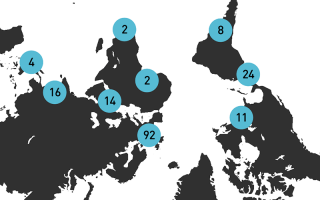Jamie Pett (2011-2012): Economist/ODI Fellow, Zanzibar Planning Commission

Q: What initially sparked your interest in the DAP programme? What was your prior experience with development, if any, and what did you hope to achieve by participating in the course?
A: I was coming to the end of my first degree and thinking about my next steps. I needed to find a way into the development sector but I was torn between trying to get an unpaid internship and doing another degree. I was initially worried that doing a Masters would not give me the practical experience I would need to get a job afterwards. However, when I found the DAP programme, I realised I had found an ideal compromise.
I had previously studied some development issues during my undergraduate course (Philosophy, Politics and Economics) and had some exposure to travelling and working in developing countries. For example, I had volunteered in India through Development in Action (DiA) in summer 2010. However, I didn’t feel like I understood the mechanics of how my experience on the ground fitted in to the grand macro theories I had been taught. I chose DAP to help me find that connection and discover what processes and decisions drive the process of development.
Q: How or where did you first hear about the DAP programme?
A: I first heard about the programme through a friend of a friend during my bachelor’s degree at the University of Warwick. She was in the middle of the programme and I was intrigued to hear about the mix of theory and practice.
Q: What was your favourite aspect or feature of the DAP course? What was your favourite module or subject?
A: I enjoyed the span of the course. It was great to go from a lecture on the dynamics of global inequality to learning the methods that development agencies use when making interventions – all with a critical eye. The most rewarding (and also challenging) part of the course was working in teams as part of the Development in Practice module (DA4). The experience of working together to put together a project proposal, interviewing government officials and rural farmers, and drafting final reports was at times frustrating but ultimately valuable because it reflects the way work happens in the ‘real world’.
The field trip in Ethiopia especially was one of the best experiences I’ve had and was a useful introduction to the many challenges of doing research in developing country. As well as the course itself, it was fantastic to have course mates from so many different countries. I think we counted 33 at one point. Having diverse perspectives made seminars fascinating. An additional benefit is having friends I can visit all over the world.
Q: How has your career developed since completing the course? Where have you been working since graduation, and how did you get into that role? How has the course prepared you for your current career?
A: I received a job offer from the UK Foreign and Commonwealth Office (FCO) three days after submitting my dissertation. I was part of a graduate internship programme and worked as an economist in the Middle East and Africa team in the Economics Unit. I learnt a huge amount in the year I was there – both about how the UK government operates in a rapidly-changing world and how I could work more effectively within that context. Throughout my time at both the DPU and FCO I was part of the Volunteer Management Committee for DiA, as Communications Manager then Vice-Chair. This was invaluable experience in managing and leading various aspects of a small charity.
I believe that my experiences at the DPU, FCO and DiA got me my current position working as an ODI Fellow at the Zanzibar Planning Commission. (That is, aside from showing my obvious love of Three Letter Acronyms (TLAs). My placement certainly matches up very well with the DAP syllabus as I am in the Department of National Planning, Sector Development and Poverty Reduction. My work involves drafting, editing and evaluating project proposals, making recommendations on national planning priorities and on planning processes, and whatever else I am asked to do by the Revolutionary Government of Zanzibar. The DAP Programme has helped to prepare me for such a role and I have found myself looking back at lecture slides, notes and readings from the course on several occasions.
Q: Do you have any words of advice for current or prospective students?
A: Make the most of the professors and teaching assistants you work with. You can learn a lot from informal conversations as well as lectures. Also chat to course mates about their previous work experience as many have already held interesting positions. Don’t expect to find all ‘the answers’ – the course will often leave you with more questions, but you’ll be better equipped to think about them. Prepare to have your preconceptions challenged and debate people from all over the world.
 Close
Close


